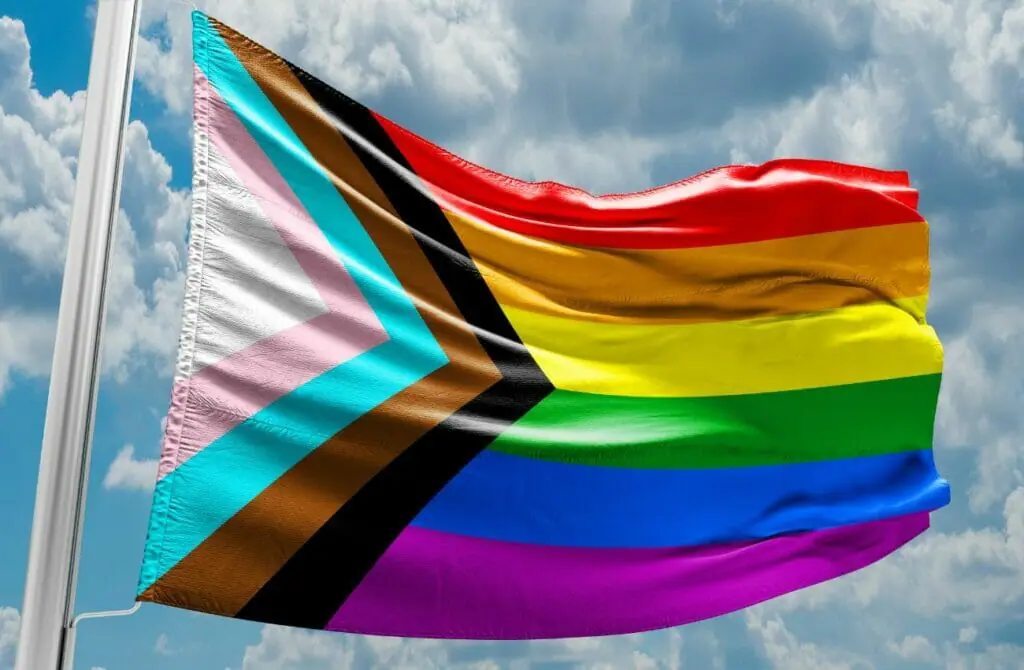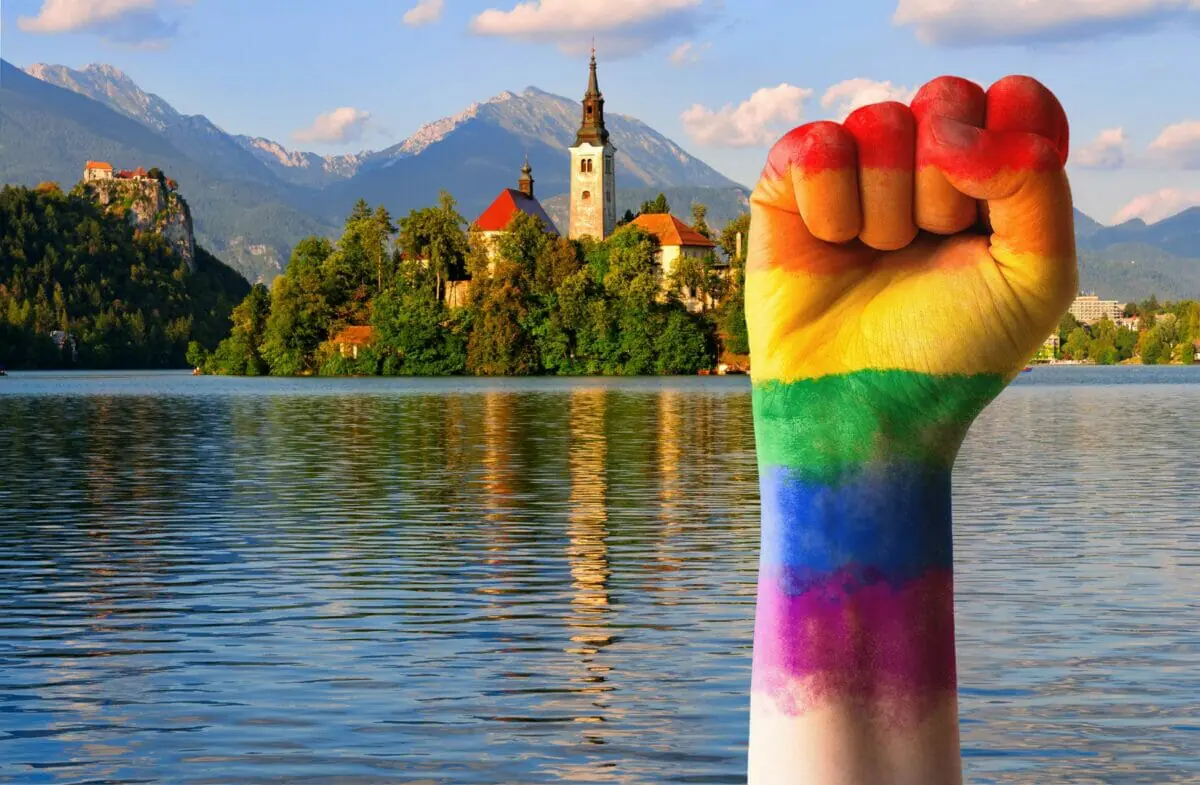LGBT rights in Slovenia have significantly evolved over time, with the country standing out as the first post-communist nation to legalize same-sex marriage. Among Slavic countries, Slovenia remains the sole country to have done so.
These advancements in LGBT rights have had varying impacts on local citizens and tourists alike, with a different set of challenges and experiences for each group.
While Slovenia demonstrates progress in terms of LGBT rights, it is essential for both locals and tourists to remain vigilant and aware of their surroundings, as situations can change rapidly, and not all individuals may be accepting or supportive. To ensure up-to-date and accurate information, travelers are advised to seek current advice before embarking on their journey.
Several LGBT advocacy groups operate in Slovenia, promoting awareness, support, and protection for the community. Connecting with these organizations can aid in navigating potential obstacles and fostering a safe environment for everyone, whether they are local or visitors to the country.
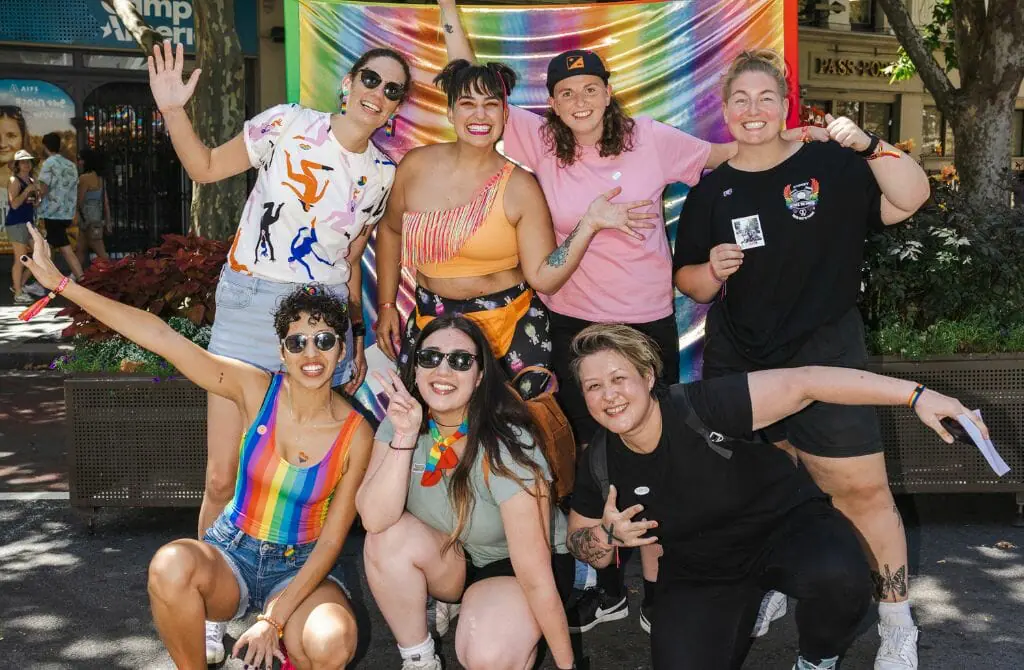
History of LGBT Rights In Slovenia
The history of LGBT rights in Slovenia can be traced back to its time as part of Yugoslavia, a communist country. Slovenia was the first former communist and remains the only Slavic country to have legalized same-sex marriage. This significant evolution of LGBT rights in the nation showcases progress in how the rights of local people and tourists have been addressed.
During the Yugoslav era, the LGBT community faced many struggles and challenges fighting for their rights. Over the years, several key developments have paved the way for greater equality and acceptance in Slovenia. Many of these advancements can be credited to the tireless efforts of LGBT advocacy groups, such as Škuc LL, working towards legal protection and social acceptance for the community.
In 2022, the Constitutional Court of Slovenia made a landmark decision by ruling that the statutory definition of marriage as a living community of a husband and a wife is unconstitutional. This decision legalized same-sex marriage in the country and came into force on 9 July 2022. Furthermore, Slovenia has made progress by legally allowing individuals to change their gender without requiring surgery. However, non-binary gender recognition is not currently legally recognized in the nation.
Despite the positive trajectory of LGBT rights in Slovenia, it is crucial for both local people and tourists to remain vigilant, as situations can change quickly, and information can become outdated. It is highly recommended for individuals to seek current advice before traveling and to be mindful of any changes in legislation or social attitudes. Sustaining an awareness of potential bad actors who may not uphold these rights is equally essential.
In conclusion, the history of LGBT rights in Slovenia is marked by significant progress, especially since its time as a communist country within Yugoslavia. While strides have been made to protect the rights of the local and visiting LGBT community, it is essential for individuals to remain informed and vigilant about potential challenges and changes.
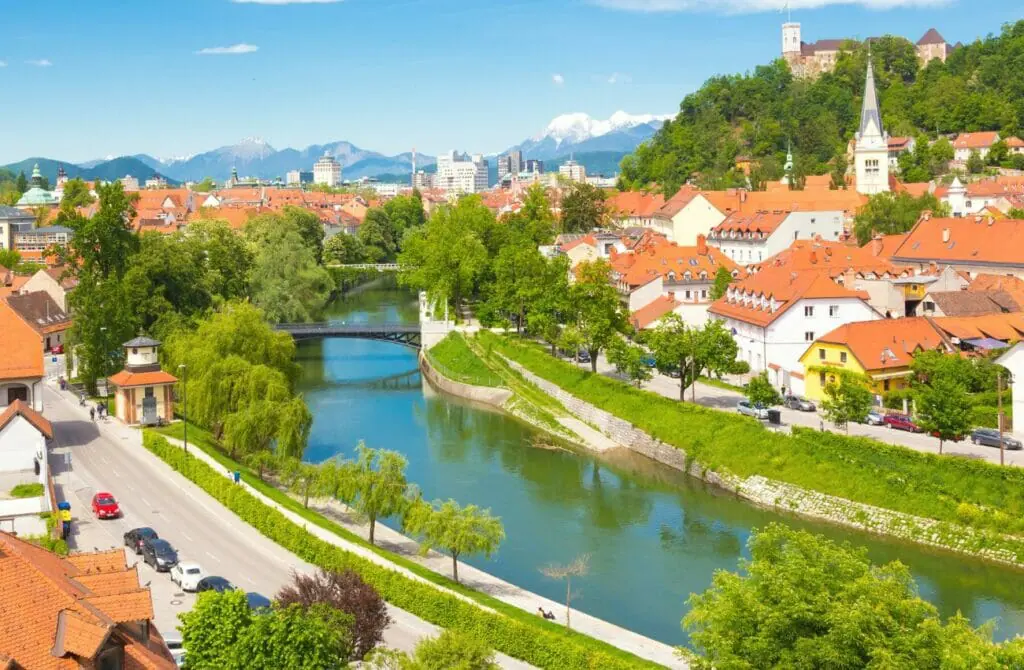
The LGBT Legal Situation In Slovenia
In Slovenia, the legal situation regarding LGBT rights has seen significant progress over the years. Slovenia made history as the first post-communist and the only Slavic country to legalize same-sex marriage. The Constitutional Court of Slovenia ruled in favor of same-sex marriage on 16 June 2022, deeming the statutory definition of marriage as a community between a husband and wife unconstitutional. This court decision was published on 8 July 2022 and came into force the very next day, on 9 July.
In addition to marriage equality, Slovenia has implemented laws to prevent discrimination based on sexual orientation and gender identity. The country’s anti-discrimination laws apply to various aspects of life, including employment and housing. Furthermore, Slovenian law allows individuals to legally change their gender without undergoing surgery.
However, some limitations remain for LGBT rights in Slovenia. While the country recognizes registered partnerships, not all rights granted to heterosexual couples are extended to same-sex couples. Adoption rights for same-sex couples are still limited, with joint adoption not being legal. Gender expression is not yet protected by the law, and no legislation forbids conversion therapy.
When it comes to LGBT rights affecting locals and tourists, it is crucial to stay informed about the current legal situation and be aware of any potential changes to the laws. Although Slovenia has made substantial progress in terms of equality, it remains essential to be cautious and vigilant, as situations can rapidly change, and there may be individuals with harmful intentions.
LGBT advocacy groups in Slovenia play an essential role in promoting and protecting the rights of the community. Local organizations, such as Legebitra and DIH – Enakopravni Pod Poncami, actively work toward ensuring a safe and equal environment for both locals and tourists. In case of issues or concerns, contacting these organizations may offer valuable support and advice.
Given the continuous changes in the legal landscape and social attitudes, keeping up-to-date with the latest information before traveling is the best way to ensure safety and be well-prepared to deal with any issues that may arise while in Slovenia.
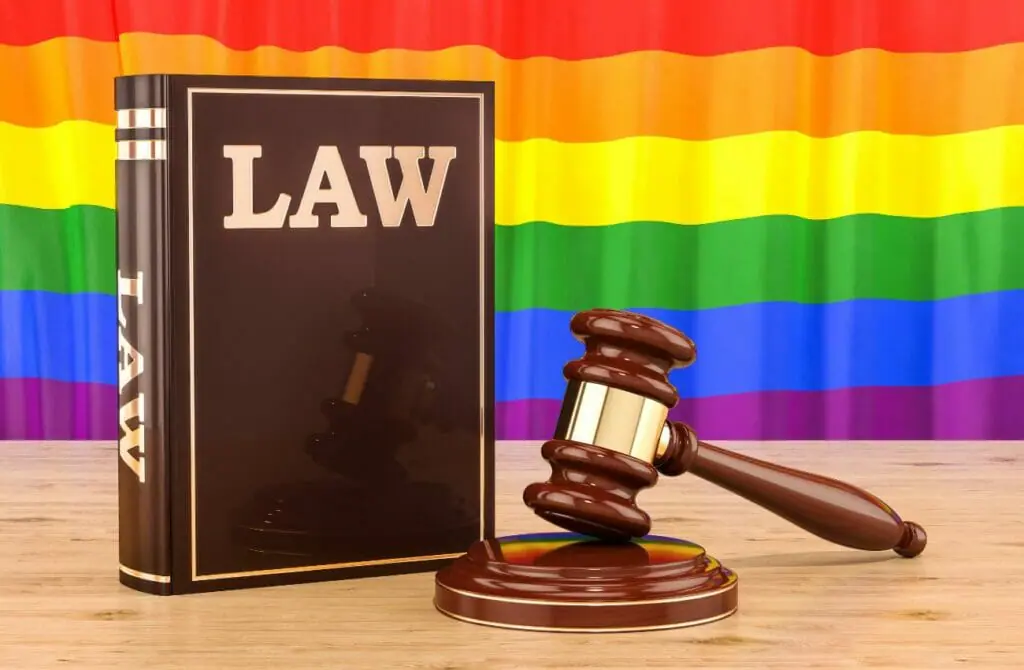

The LGBT Social Situation In Slovenia
In Slovenia, the social situation concerning LGBT rights has seen positive developments in recent years. Public opinion has generally become more accepting of the LGBT community, and the country has enacted legal measures to protect these individuals from discrimination. However, it is important to remain vigilant, as situations can change rapidly, and bad actors may still exist within the country.
LGBT rights in Slovenia include legal recognition of same-sex relationships, anti-discrimination laws that pertain to employment and housing, and the right for individuals to change their gender without surgery. Nevertheless, there are still gaps in these protections, such as the lack of access to adoption, assisted insemination, and pensions for same-sex couples.
In terms of public opinion, the Eurobarometer survey in recent years has shown increasing support for LGBT rights. This demonstrates an overall positive shift in attitudes toward LGBT individuals, which could potentially lead to further legal advancements.
Regarding migrant workers, the country’s anti-discrimination laws protect them from discrimination based on their sexual orientation or gender identity. This helps ensure that LGBT migrant workers have equal rights in the workplace and access to goods and services. It is essential, however, for these individuals to remain vigilant and seek current advice before traveling to understand the specific challenges they may face.
To address and promote LGBT rights, several advocacy groups operate within Slovenia, such as the LGBT advocacy group Škuc LL. These organizations continually work to promote and improve the social and legal situation for LGBT individuals through awareness campaigns, lobbying efforts, and support services.
For both local people and tourists, staying informed about the current situation regarding LGBT rights in Slovenia and following the guidance of reputable advocacy groups is key. It is crucial to always err on the side of caution and remain aware of the possible risks and challenges that may arise due to the actions of bad actors or changing circumstances.
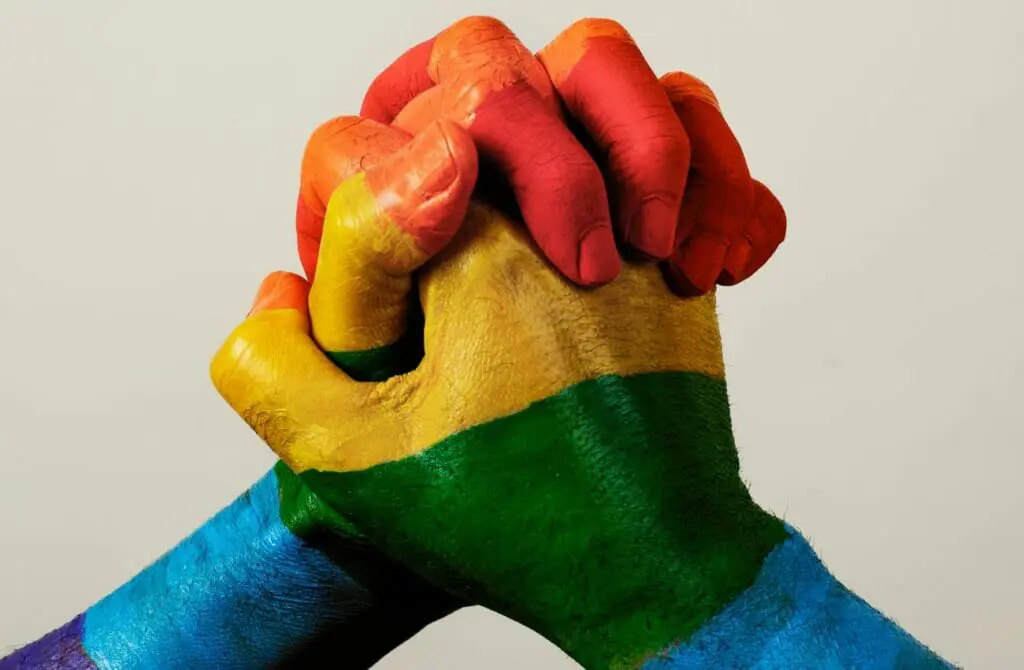
Trans Rights In Slovenia
Slovenia is considered a progressive country concerning lesbian, gay, bisexual, and transgender (LGBT) rights, including those of transgender individuals. Transgender people in Slovenia can legally change their gender without the requirement of surgery, making the process more accessible and respectful of personal autonomy.
Local transgender citizens and travelers should be aware that, despite the progressive legal climate, social acceptance could still be an area of concern. While the legal framework is in place, it is not always carried out in practice, meaning that discrimination could still be faced by transgender individuals. It is essential to remain vigilant and cautious, understanding that bad actors exist in every country.
To better protect oneself, it is advisable to research and seek advice from relevant LGBT advocacy groups in Slovenia. These organizations can provide up-to-date information on the local situation, ensuring travelers have the most current and accurate understanding of the rights and social climate for transgender individuals in the area. Please note that situations may change quickly, and the information provided could become obsolete.
To contribute to the safety and well-being of transgender individuals in Slovenia, both locals and tourists should support efforts towards further social acceptance and the implementation of existing laws. By aligning with local LGBT advocacy groups and staying informed about the issues, all parties can help ensure that Slovenia continues its progress toward full equality for all, regardless of gender identity and expression.
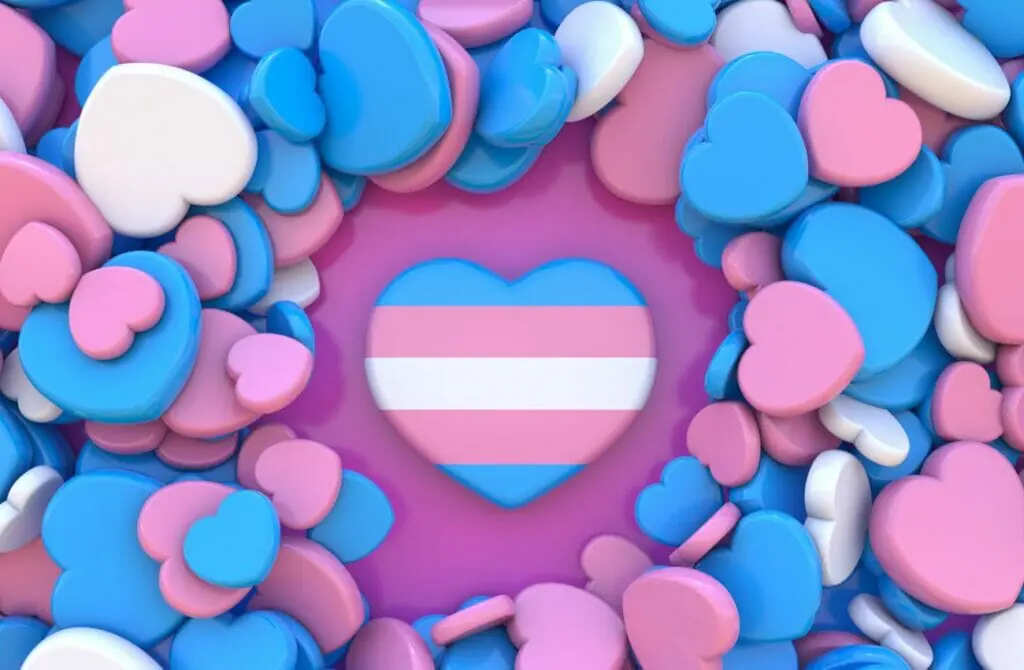

The Future For The Queer Community In Slovenia
In recent years, Slovenia has made significant strides in advancing LGBT rights. On January 31, 2023, the country legalized same-sex marriage and adoption, becoming the first country in Eastern Europe to do so. This move reflects Slovenia’s commitment to promoting equality and supporting its LGBT population. While progress has been made, it is essential for individuals, both locals and tourists, to remain aware of the potential challenges they might face and steps they could take to stay protected.
As situations can change rapidly, it is crucial to stay updated on the latest information before traveling or engaging in advocacy efforts. LGBT rights can vary significantly from region to region, and local laws and attitudes might impact daily life. In some instances, tourists might experience different treatment compared to locals, so staying informed and vigilant is essential for ensuring one’s safety and well-being.
To further promote the future of LGBT rights in Slovenia, there are several local LGBT advocacy groups working to raise awareness, support individuals, and enact policy changes that will benefit the community. Engaging with these organizations can provide valuable resources and information and can help foster a more inclusive and accepting environment for the LGBT community.
In conclusion, the future of LGBT rights in Slovenia appears to be on a positive trajectory, with marriage equality now established. However, remaining aware of local and regional challenges, as well as staying up-to-date on current information, allows individuals to proactively protect themselves and contribute to advancing equality for all.
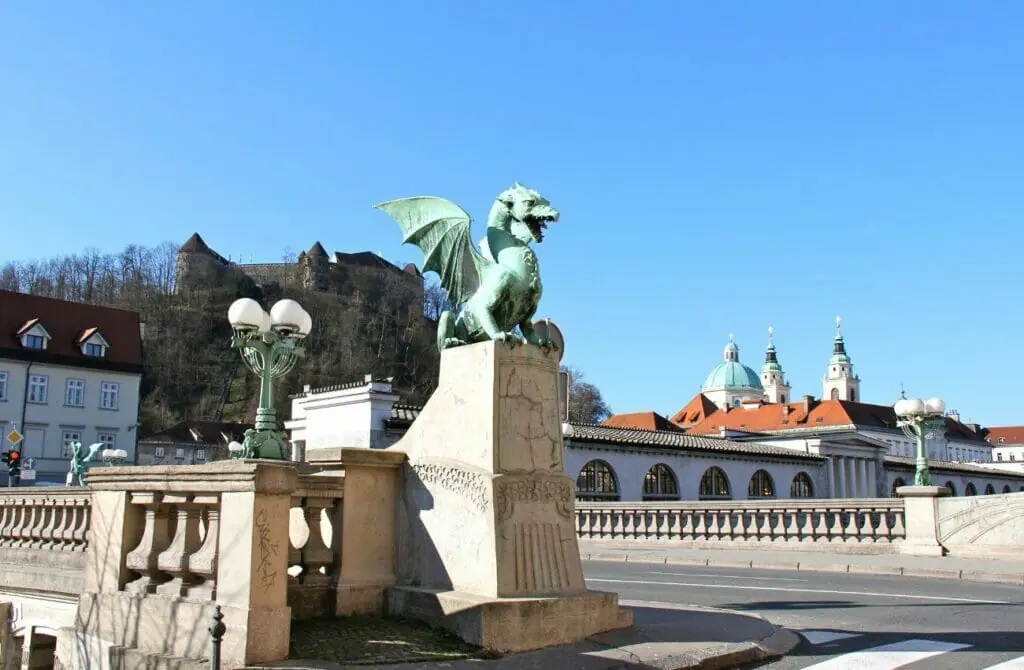
Protect Yourself While Travelling In Gay Slovenia
LGBT rights in Slovenia have made significant progress in recent years, with same-sex sexual activity being legal since 1977 and registered partnerships for same-sex couples offering limited inheritance, social security, and next-of-kin rights since 2006. However, it is essential to be aware of the local context and protect oneself when discussing or engaging in LGBTQ-related activities.
While Slovenian society is generally accepting of LGBTQ individuals, discrimination might still be encountered in various spheres, such as education, housing, and employment. Both local people and tourists should remain vigilant and take necessary precautions to ensure their safety and well-being.
Situations and legal contexts can change rapidly, so it is crucial to stay informed about the most up-to-date information and advice before planning any travel or engaging in LGBTQ-related activities. Seek guidance from reputable sources and be aware that the situation on the ground could be different from what is officially reported.
There are several LGBT advocacy groups in Slovenia, such as Legebitra and DIH – Enakopravni Pod Mavrico, that can provide valuable information and support to individuals in need. These organizations actively work on promoting equal rights and combating discrimination against members of the LGBT community. They can be excellent sources of knowledge and resources for navigating the challenges of being LGBTQ in Slovenia.
In conclusion, while Slovenia has made strides in ensuring equal rights and protections for LGBTQ individuals, it is crucial to remain cautious and vigilant as a local person or tourist. Be aware of the potential challenges and risks, stay informed about the latest changes in legislation and social attitudes, and connect with local organizations for support and guidance in ensuring your personal safety and well-being.
